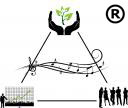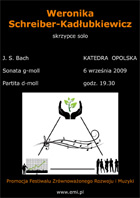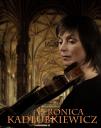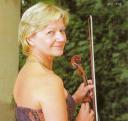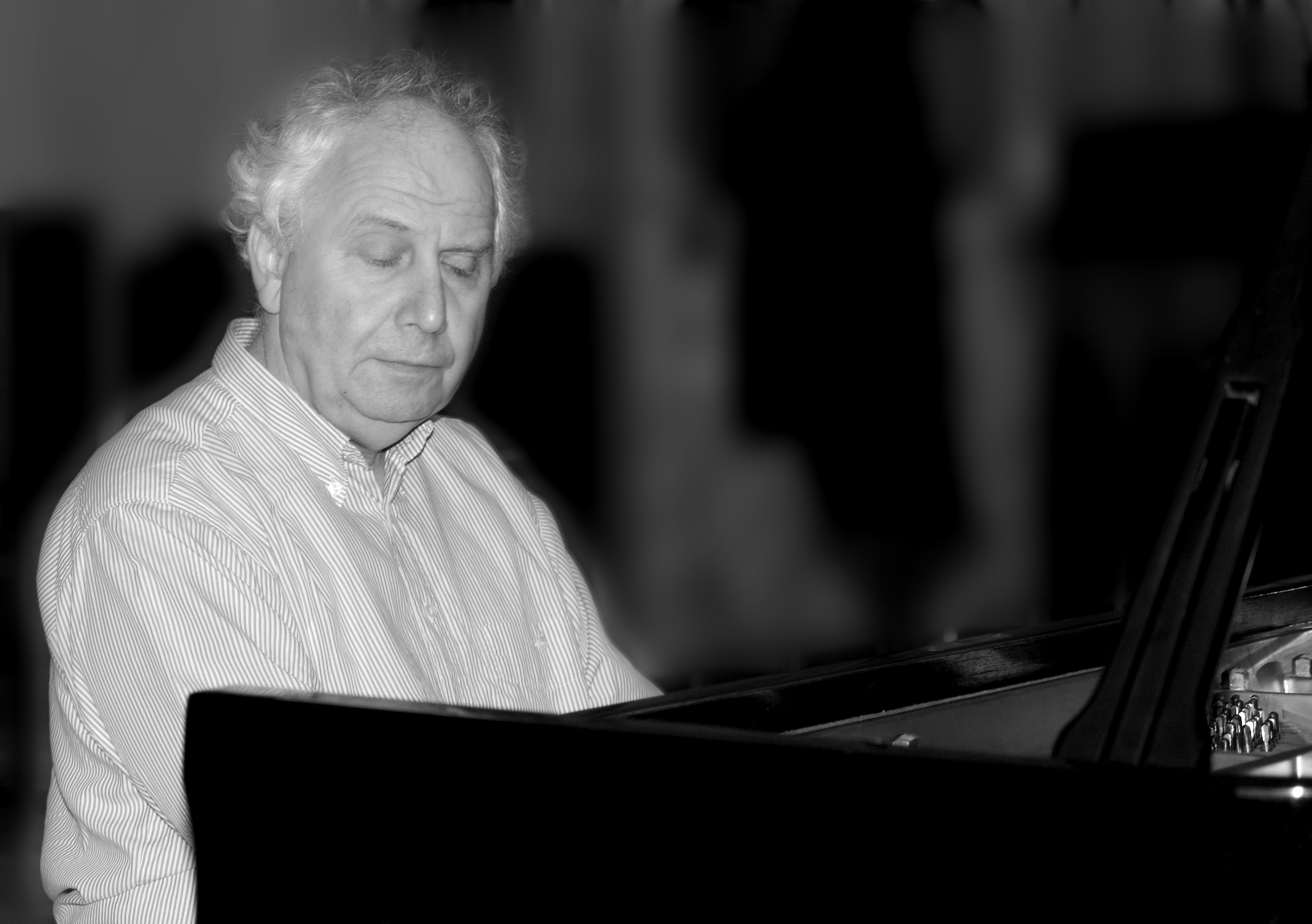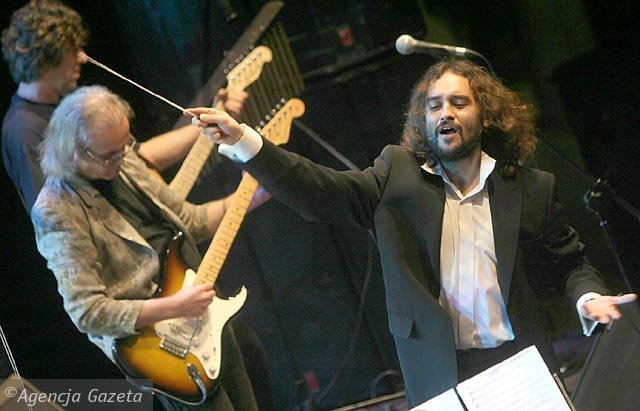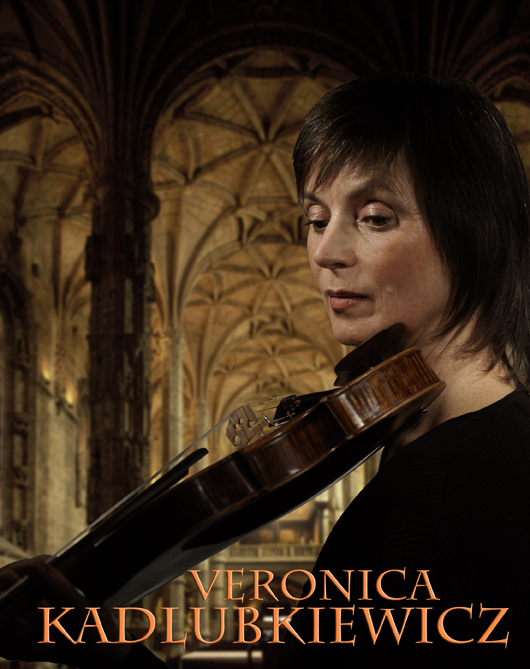“… a dazzling violinist..” in the words of Herman Trotter (High Fidelity Magazine)
Master Class, Minturno, Italy 14-18 July 2009 – registration up to 15 May2009
Veronica Schreiber Kadlubkiewicz graduated with highest honors of the Warsaw Academy of Music in Poland and continued her studies in the USA with Henryk Szeryng, Roman Totenberg and Paul Zukofsky. Finalist of the Alberto Curci Competition in Naples, Italy, she received a special award from the Rockefeller Competition for Excellence in American Music in Washington D.C. Ms. Kadlubkiewicz has appeared as soloist with orchestras in the USA, Poland, Italy and Spain. She has also frequently performed at such festivals as Marlboro Music, Bach Aria Festival, Monadnock Music, Estatedi Radicondoli, Musica Electronica Nova and Warsaw Autumn Festival. An avid performer of solo violin recitals sought out for her interpretations of contemporary music, each year she premieres new compositions written for her. She was a participant in the Sommerkurs fur Neue Musik in Darmstadt and a member of Creative Associates in Buffalo, NY.
Formerly concertmaster of the Polish Chamber Orchestra, Orquesta Filarmónica de Gran Canaria and the New Hampshire Symphony, Veronica Kadlubkiewicz has also played with the Orpheus Chamber Orchestra, the Boston Symphony Orchestra, and the New England Camerata. She taught violin and chamber music at the University of Massachusetts in Amherst, Smith College and Amherst College.
Ms. Kadlubkiewicz now resides in Paris, France where she has appeared at Salle Cortot; Ecole Normale Supérieure, rue d’Ulm; St. Julien le Pauvre; and Eglise de Trinité among others. Last season she performed in Italy, the USA, Poland, France and premiered compositions by Francois Nicolas, Salvatore Macchia and Beatriz Ferreyra, all written for her. The season 08/09 will see her giving many “all Bach” presentations of his solo violin works, the Concerto by Philip Glass as well as piano-violin recitals.
Ms. Kadlubkiewicz has recorded for Gasparo and CRI labels, Polish Radio, and WDR in Germany.
Kategoria: Weronika Kadłubkiewicz | Komentarze wył. »
Concert pianist, professor of piano, juror of piano competitions. Throughout her life music has been the central focus and inspiration. Conveying its inherent contents and emotions she considers her life mission fulfilled by performing and teaching. Maria Szraiber is also interested in various questions concerning both the composer’s work and its interpretation potential in the field of the piano literature as well as in the history of piano playing. She also devotes some of her time to the matters of the teaching process organization at the different levels of music education.
Born in Silesia Maria Szraiber there began the piano education leading her to the graduation from the Music Academy in Katowice.
Her teachers were: Wanda Chmielowska, heir of the famous piano school of T. Leschetizky and Bolesław Woytowicz, heir of the pure F. Chopin tradition, through Karol Mikuli, F. Chopin’s pupil. Maria Szraiber’s piano studies were completed at the famed P. Tchaykowsky Conservatory in Moscow where she worked under the guidance of Tatiana Nikolajeva and Rudolf Kerer, both well known representatives of the Russian school of piano playing.
Maria Szraiber has performed in concert halls throughout Poland and most of Europe, as well as in the United States, China, Japan, South Korea and Australia.
She has made many recordings. Playing the wide repertoire she is particularly associated with the music of Chopin and Debussy as well as with many works from the rich Polish piano literature. Some of her concerts have been enriched by her own comments.
Maria Szraiber often gives concerts in the places connected with Fryderyk Chopin, like Żelazowa Wola, the place of his birth, under the composer’s monument in the Łazienki Park in Warsaw and others.
In addition to performing Maria Szraiber loves to teach. She is a full professor at the Fryderyk Chopin University of Music in Warsaw where she was also elected dean of the Department of Piano, Harpsichord and Organ and was as well head of the Piano Chair.
For many years Maria Szraiber has been conducting master classes and giving lectures in Poland and abroad. She has sat on the jury of a number of piano competitions. In line with her interest in the history of piano playing she has been presenting a series of concert-lectures and reminiscences entitled “Nestors of Polish Piano Pianistics”. As a result of the series a two volume publication appeared under the same title including biographies and reminiscences devoted to Zbigniew Drzewiecki, Jerzy Lefeld, Aleksander Michałowski, Stanisław Szpinalski, Józef Śmidowicz, Margerita Trombini-Kazuro, Józef Turczyński, Maria Wiłkomirska and Jerzy Żurawlew. The book, published also in English, is accompanied by CDs with the recordings of the presented pianists.
Maria Szraiber’s interest in teaching led her to prepare a large monograph On Educating the Artist-Performer at the College Level of Piano Studies (AMFC, Research Bulletin no. 44, Warsaw, 1999).
Studying and interpreting the literature for the piano as well as artistic activities of great composers are sources of inspiration for her writings and lectures. Here are a few examples:
- The Waltz. The Road to Artistic Stylisation in the Work of F. Chopin – an article contributed to “Fuga” (2001 no. 4),
- C. Debussy – composer of piano music and pianist (Gdańsk Music Academy, Research Bulletin “Piano Music”, Gdańsk 2004);
- Polish Piano Playing Tradition. The Leschetizky heritage in the rich history of Polish XXth century pianistics and piano pedagogy (Universität für Musik und darstellende Kunst, Wien 2006);
- T.Leschetizky – great teacher of pianists (Gdańsk Music Academy, Research Bulletin “Piano Music”, Gdańsk 2007);
- lectures and comprehensive talks accompanying specially profiled concerts, e.g.:
- o F. Chopin’s waltzes – The peak achievement of artistic stylisation of dance;
- o Polish pianists of international renown at the turn of the XXth century;
- o Polish piano music in the Chopin circle (1999);
- o Edward Grieg – composer, pianist, conductor (1997);
- o Grażyna Bacewicz – the universal musician.
Maria Szraiber has always been deeply concerned about the organization of music education at all levels. During her long term as dean she launched various initiatives in the search for the optimal syllabus for music universities. She also serves as an expert advisor for the Ministry of National Education.
Kategoria: Maria Szraiber | Komentarze wył. »
“Of all my students, Magda plays in the most beautiful way…” – that is how Tadeusz Wroński, a longtime professor of the Academy of Music in Warsaw, one of the greatest and most versatile of Polish teachers of the art of violin playing, used to say about Magdalena Rezler-Niesiołowska. The artist proved that opinion was justified by winning a number of such reputable international violin competitions as Queen Elisabeth of Belgium in Brussels, Jacque Thibaud in Paris or Karl Flesch in London. She also won medals at the Biennale in Bordeaux and, together with her string quartet, in Budapest.
Born in Bydgoszcz, in a known family of musicians, she graduated from the Academy with honors, being a student of Professor Wroński and of closely cooperating with him Stanisław Kawalla. As a soloist, she takes part in symphony and chamber concerts and performs recitals in almost all European countries, but also in the USA, Mongolia and South Korea. Her performance was often recorded for the radio and television in Poland, Czechoslovakia, East Germany, West Germany, Belgium and France. Her repertoire includes over 30 concertos with orchestra and 20 recitals. She was a concertmistress of the “National Philharmonic Chamber Musicians” orchestra of Karol Teutsch, performing many solo concertos with it; currently she also takes part in chamber concertos in Germany and Switzerland, cooperating with excellent instrumentalists, such as “Freiburger Barock Solisten.”
Magdalena Rezler-Niesiołowska, following the steps of her professors, is an excellent educator – for many years she led a violin class in her home Warsaw university, and since 1991 she has been a professor in the renown Hochschule für Musik in Freiburg (Germany). Her graduates are members of symphony orchestras in Berlin, Frankfurt, Stuttgart, Bremen, Hamburg, Detmold, Freiburg, Warsaw, Budapest, Zurich, Istanbul, Seoul, Tokyo and of the International Mahler Orchestra. She conducts master courses in Germany, Poland, South Korea, Japan, Austria and the USA. She is a jury member of violin competitions in Poland and abroad.
Her latest CD “Con bravura e sentimento” with Polish virtuoso music for solo violin, recorded with her husband, a well known conductor Maciej Niesiołowski, gained wide attention and admiration. Wanda Wiłkomirska wrote about it in the letter to performers: “…congratulations both for the idea and for performance….Magda’s performance is unusually delightful…You play Wieniawski Polonaise better than all the candidates for the Wieniawski Competition put together…Scherzo-Tarantella sounds perfect, but to be effective it must be played with such rhythmic precision and such fantastic accompaniment as you do…”
For the last few years (2005-2007) Magdalena Rezler-Niesiołowska has performed mainly in Germany – a lot of recitals of diverse scope, such as a solo recital (with sonatas of Bach, Bartók, Bacewiczówna, Ysaÿe and Meyer), all Beethoven’s sonatas, recitals of Polish music and other. Moreover, together with recognized artists, she took part in many concerts of chamber music with orchestras in Poland, Switzerland and Germany. Recently, with “Capella Bydgostiensis,” she performed Mozart concertos in Germany. With the National Polish Radio Symphony Orchestra in Katowice, she played a violin concerto of Krzysztof Meyer and with Juliusz Berger – concerto for violin and violoncello of the same composer.
Kategoria: Magdalena Rezler-Niesiołowska | Komentarze wył. »
Magdalena Rezler-Niesiołowska – pearl from Poland “…The chance to admire of a Polish virtuoso of this class does not happen too often in Chicago. A virtual pearl from Poland! We thank you for that concert….” Dziennik Związkowy (Polish Daily News), Chicago April 9, 2004.
37th Poznań Musical Spring Festival
“…Comprehensive perfection of this piece (Espressioni Varianti of Tadeusz Baerd) was connected with the orchestra’s high level of performance and fascinating, as far as technique and expression is concerned, playing by a soloist Magdalena Rezler-Niesiołowska…” Tadeusz Szantruczek Ruch Muzyczny, December, 2002
In the best style
“… She plays Bach in the way the greatest masters played him…” Ludwik Erhard Ruch Muzyczny April 15, 2001
Great violin solo. Concert in Hochschule fuer Musik in Freiburg, performed by Magdalena Rezler
“Magdalena Rezler did not take the easy way out during the evening solo program in the Chamber Hall of the University. From the very first to the last minute, from Bach’s Sonata No.1 till Ysaÿe’s ballad, the concert was dominated by virtuosity of the violin player…
The technique of playing justifies comparison of the concerto to a hurdle race. The Freiburg professor did not give the audience any rest periods, performing in a masterful, commanding respect way… Badische Zeitung. June 5, 2001
“…Magdalena Rezler’s violin sounds very beautiful, with sincerity and great power to persuade. This typical East European sound matched perfectly Bach’s Sonata. Her music was like a fervent prayer, personal communication with God. Ysaÿe’s solo sonata was played with astonishing virtuosity, and in the “Arethusa´s Fountain” the artist, together with the pianist Naoko Matsumoto, conjured up a mystic atmosphere. The concert, crowned with performing Ravel’s “Tzigane” and Elgar’s “The Snow,” proved to be a great success of the violinist.” Tokyo, November 28, 2001
“…Fascinating lightness of playing!
Inspiring performance and the skill to explore the lyric nature of contrasting fragments of Strauss’ sonata…” Badische Zeitung December 12, 2001
“…The soloist of the evening, presenting herself in Concerto A minor, was a violinist of Polish origin, Magdalena Rezler, professor of Freiburg University of Music. She enriched her interpretation by powerful momentum and, at the same time, flexibility of sounds, which inspired the orchestra to perform with even stronger emotion…” Darmstädter Echo December 13, 2000
Summer meetings in Radziejowice
“…Experts on music sitting among the audience admired Magdalena Rezler’s craftsmanship and control of the violin and her interesting interpretation of Romance, Krakowiak (Cracovienne), Burlesque or all three Wieniawski’s pieces that she played. … Only real virtuosi are capable of playing like this. The audience recognized it instantly. Thunderous applause and several encores were the result … August 16, 2000
“…In solo parts of popular around the world violin compositions, this time we had an opportunity to listen to the famous Magdalena Rezler-Niesiołowska. Bach violin Concerto in A minor in the violinist’s interpretation was first of all intriguing by its sound quality. …, virtuoso Rondo capricioso of Camille Saint-Saëns, full to the brim with Spanish fiery enthusiasm, fully highlighted the violinist’s brilliant craftsmanship, so impressive due to sparkling figurations, especially extraordinary flexibility in the use of the bow…” Katarzyna Kaczmarczyk Gazeta Wyborcza, Opole October 9, 2000
POLISH DAYS – CONCERT IN “KLEINE MUSIKHALLE” IN HAMBURG
“…the superiority with which the charming Pole conjured up such a composition as Ravel’s “Tzigane.” It was equally astonishing with what self-restraint she immersed herself in the beauties of Beethoven’s Sonata… rich artistic maturity and devilish virtuosity in the caprices of Paganini and Polonaise of Wieniawski kept one in constant suspense…”
Hamburger Abendblatt
It was a concert that filled the audience with wonder, which then broke into frantic applause – not a common view among the people of the North, usually reserved in their manner. Playing translates into presenting something extraordinary – nobody could prove it better that than the Warsaw violinist Magdalena Rezler. “Super-musical” to the bone, M.R. plays with her whole body, and while playing she reads aloud the whole intensity of her interpretations. To listen and see how this Pole plays – is a real pleasure! Cuxhavener Nachrichten
Extraordinary concert of the Dresden Philharmonic
“…It was followed by Beethoven violin concerto in D major performed by a Polish violinist Magdalena Rezler, quite familiar to the audience due to her many performances and having a faithful group of local listeners. After compositions of Karłowicz, Bacewicz and Viotti, it was her most ambitious challenge. The way she met it commands sincere respect. Her mind concentration and excellent control with which she performed were almost palpable when she was getting out of it all forms and content that so much distinguish it. On the other hand, the intensity of her playing was remarkable, and the same could be said about savoring many lyric fragments – all the time maintaining enviable lightness of sound. Vigorous presentation of the dramatic events of the composition was also remarkable. …” Saechsische Neueste Nachrichten
…her cultured, free of any trace of exaltation interpretation of Mendelssohn concerto and excellent performance of Ysaÿe’s Ballad as an encore offered hope that organizers of musical life in Silesia will remember about this soloist more often in the future. Gazeta Robotnicza, Wrocław
Kategoria: Magdalena Rezler-Niesiołowska | Komentarze wył. »
Wydawca: Universal Music Polska ACD 111-2
CON BRAVURA e SENTIMENTO
Polska muzyka wirtuozowska
Andrzejowski, Chopin, Statkowski, Wieniawski, Zarzycki
Opracowanie na skrzypce i orkiestrę ARNOLD REZLER
Magdalena Rezler-Niesiołowska skrzypce
SINFONIETTA BYDGOSTIENSIS
Maciej Niesiołowski dyrygent
Kategoria: Magdalena Rezler-Niesiołowska | Komentarze wył. »
PROPOZYCJE PROGRAMÓW RECITALI
I
J. BRAHMS 3 Sonaty na fortepian i skrzypce
G-dur op.78 ca 25′
A-dur op.100 ca 18′
d-moll op.108 ca 20′
całość z przerwą ok. 100 minut
II
MOZART – BEETHOVEN – BRAHMS
Wieczór sonat na skrzypce i fortepian
III
WIECZÓR SONAT ROMANTYCZNYCH na skrzypce i fortepian
F. Mendelssohn – Sonata F-dur
E. Grieg – Sonata c-moll
C. Franck – Sonata A-dur z przerwą ok. 120 min.
IV
HITY MUZYKI FRANCUSKIEJ na skrzypce i fortepian
C. Franck Sonata A-dur
C. Saint-Saens Introdukcja i Rondo-Capriccioso
E. Chausson Poem
M. Ravel Tzigane
V
KONCERT BISÓW
Przykład programu:
A. Dvorak Humoreska
A. Chaczaturian Maskarada
K. Bohm Gavot
C. Debussy Minstrels
H. Wieniawski Polonaise
Legenda
Kujawiak
J. Massenet Thais
J. Suk 4 Utwory
D. Szostakowicz 4 Preludia
R. Statkowski Mazurek
Kujawiak
A. Andrzejowski Burleska
Program można dowolnie wymieniać, wydłużać lub skracać
Przeciętny czas koncertu (z przerwą) ok. 100-110 minut
VI
MUZYKA POLSKA na skrzypce i fortepian
J. Paderewski Sonata
K. Szymanowski Sonata
A. Zarzycki Romans
Mazurek
H. Wieniawski Scherzo-Tarantella
Legenda
Polonaise A-dur
Albo
J. Paderewski Sonata
K. Szymanowski Mity
Nokturn i Tarantela
W. Lutosławski Partita
Programy można dowolnie wymieniać.
Przeciętny czas koncertu (z przerwą) 100 do 120 minut
VII
DUET SKRZYPCOWY
MUZYKA POLSKA i NIEMIECKA
Wyk.: Magdalena Rezler Niesiołowska
Adam Niesiołowski
Program:
G. Ph. Telemann Sonata kanoniczna G-dur na dwoje skrzypiec
J. S. Bach Chaccona d- moll na skrzypce solo
J. Spohr Duet Es-dur op.3
F. Janiewicz Divertimento na 2 skrzypiec
G. Bacewicz Sonata na skrzypce solo
H. Wieniawski Kaprys op.18 nr 2 na dwoje skrzypiec
G. Bacewicz Suita na dwoje skrzypiec
VIII
MUZYKA XX WIEKU na skrzypce i fortepian
P. Hindemith Sonata Es-dur op.11 nr.1
S. Prokofiew Sonata D-dur op. 94a
G. Bacewicz Sonata nr.4
W. Lutosławski Partita
IX
DZISIEJSZA MUZYKA POLSKA na skrzypce i fortepian
K. Meyer Sonata na skrzypce solo
Misterioso op. 93 na skrzypce i fortepian
R. Twardowski Capriccio In Blue
Niggunim
A. Tansman Cinq Pieces
H. M. Górecki Variazioni
PROPONOWANE UTWORY Z ORKIESTRĄ
KONCERTY:
Bach Koncerty E-dur i a-moll Vivaldi Cztery pory Roku
Mozart – wszystkie koncerty
Beethoven – D-dur
Mendelssohn e-moll
Lalo (Symphonie espagnole)
Wieniawski – d-moll
Brahms – D -dur
a-moll (na skrzypce i wiolonczelę) Sibelius -d-moll
Bruch – g-moll
S. Prokofiew – g-moll
Karłowicz A-dur
Szymanowski – nr.1 i nr.2
Meyer – nr. 2
na skrzypce i wiolonczelę
INNE UTWORY:
Beethoven – Romanse
Chausson – Poem
Ravel – Tzigane
Saint-Saens – Introdukcja i Rondo Capriccioso op.28
– Havanaise op.83
Baird – Espressioni Varianti
Lutosławski – Partita
OPRACOWANIA NA SKRZYPCE Z ORKIESTRA
ARNOLDA REZLERA:
Kreisler – Kaprys Wiedeński
– Radość Miłości
Wieniawski – Polonez A-Dur op.21
– Scherzo-Tarantella op.16
– Legenda op.17
– Walc-Kaprys op.7
– Kujawiak
– Pieśń Polska op.12
Zarzycki – Mazurek G-Dur op.26
– Romans op.16
Andrzejowski – Burleska
Statkowski -Krakowiak op.7
Chopin – Grande Valse a-Moll op.34
– Valse h-Moll op.69
– Nokturn cis- Moll op.posth
Kategoria: Magdalena Rezler-Niesiołowska | Komentarze wył. »
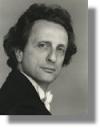 Andrea Passigli studied in Italy and in the United States. He graduated cum laude from the Conservatory L. Cherubini in Florence under the guidance of Maria Tipo and participated in the Marlboro Music Festival at the invitation of Rudolf Serkin, whose teaching had a fundamental role in his musical development, which is mainly directed towards Viennese classicism. Important points of reference in his education where also his meetings since childhood with Pablo Casals, Nikita Magaloff.. Mr. Passigli, who has constant interest for chamber music and Lied, has performed in recitals and concertos in Italy, U.S.A, Austria, England, Holland, Russia, Rumania, Yugoslavia, Hungary and Poland. He has recorded an album of 2CD with music for piano solo by Schubert, edited by fonè, a CD dedicated to Lieder on texts by Heine with the baritone Leonardo Wolovsky, and one on French impressionism with flutist Alexander Duisberg edited by Ema Records. He is Professor of Piano at the Conservatory G. Frescobaldi in Ferrara.
Andrea Passigli studied in Italy and in the United States. He graduated cum laude from the Conservatory L. Cherubini in Florence under the guidance of Maria Tipo and participated in the Marlboro Music Festival at the invitation of Rudolf Serkin, whose teaching had a fundamental role in his musical development, which is mainly directed towards Viennese classicism. Important points of reference in his education where also his meetings since childhood with Pablo Casals, Nikita Magaloff.. Mr. Passigli, who has constant interest for chamber music and Lied, has performed in recitals and concertos in Italy, U.S.A, Austria, England, Holland, Russia, Rumania, Yugoslavia, Hungary and Poland. He has recorded an album of 2CD with music for piano solo by Schubert, edited by fonè, a CD dedicated to Lieder on texts by Heine with the baritone Leonardo Wolovsky, and one on French impressionism with flutist Alexander Duisberg edited by Ema Records. He is Professor of Piano at the Conservatory G. Frescobaldi in Ferrara.
Kategoria: Andrea Passigli | Komentarze wył. »
| “…..From the first phrases of the Mozart Sonata….Andrea Passigli showed the security of a first rate musical temperament: his extremely clear phrasing, inspired by the noble calm of great Mozart interpreters like Walter and Fisher with his ” cantabile” always expanded and cordial but at the same time rigorously accentuated. These gifts that one cannot acquire, were demonstrated by the pianist in the great pages of Chopin, and with particular congeniality in the Schubert Sonata….”.Giorgio Pestelli, LA STAMPA – Torino“….Passigli plays with musicianship, understands what he plays, knows how to highlight the focal points of the various works with a striving for perfection that is admirable….”.Leonardo Pinzauti, LA NAZIONE – Firenze“…Andrea Passigli is a secure and incisive artist who, guided by nobility and taste, instinctively rejects unnecessary effects and forced expressiveness. Instead, through his interpretation, he aims at a continuous tension of the phrasing which becomes a synthesis both direct and dramatic……”.Giuseppe Rossi, PAESE SERA – Firenze“….What is striking about Mr. Passigli in general is his ability to move the audience from preoccupation with the pianist to concentration on the music itself, the true sign of a worthy performer…”.Luise Forsyth INTERNATIONAL DAILY NEWS
“…The interpretative line chosen by Andrea Passigli, a pianist with an Italian-American background, is rather clear and tends to conserve the simple and intimate image of Schubert tied to the tradition… The music develops under the sign of naturalness… significant is his respect for Schubert’s dictate, apparent in the extreme care with which he plays what is written on the page, and above all – an extremely rare case -in observing all the written repeats… The musical line develops with absolute precision and from this it draws its strength…” G.Moroni AUDIO REVIEW “…The performer allows himself to be taken by the ecstasy of sound, but without ever losing sight of the movement’s formal aspects…Particularly successful are the second and the third Moments Musicaux and the first of the Impromptus. It is the second time that I express a positive judgement on an Italian pianist’s achievement with Schubert…” Francesco Lo Cascio CD CLASSICA “…Beethoven, Bartok, Schumann: three distant musical worlds that Passigli outlined with an intelligent interpretation, always stylistically conscious and at the same time without calculated schematism….”. Gilberto Costa, PAESE SERA, Firenze “…..Mr. Passigli played putting emphasis, especially in Bach, on thoughtful moments of subtle intimacy, with a gentle and at times rich touch, and on clear differences in the dynamic ranges. In Schumann’s Carnaval, the complex elements of the musical operation were fully evidenced , in an inspired and meditated performance, at times impetuous, that perfectly highlighted the spirit of the piece…..”. LA NAZIONE, Arezzo “….Mr. Passigli gives us, intact and fascinating, Schubert’s rediscovery of expanding to infinity those essential melodic lines, the sublime “thematic” hints, which are symptoms of an unrepeatable creative inspiration….” Raffaele Fresu, IL RESTO DEL CARLINO – Ferrara “….His platform demeanour was serious, confident , and self-possessed and….he demonstrated firm command of his fingers and the keyboard in a demanding program…”. Alan Kayes, EAST HAMPTON STAR – New York |
Kategoria: Andrea Passigli | Komentarze wył. »
Wydawca: foné 97F 01/02
Franz Schubert – solo fortepianowe Andrea Passigli
CD I Sonata B-dur D960
CD II 4 Impromptus D899, 6 Moments Musicaux
Wydawca: EMA RECORDS DD60001
HEINE LIEDER Leonardo Wolovsky – baryton
Andrea Passigli – fortepian
Schubert, Schuman, Wieck, Mendelssohn, Liszt, Brahms, Grieg
Wydawca: EMA RECORDS DDD70013
Aleksander Duisberg – flet
Andrea Passigli – fortepian
Fauré, Ravel, Debussie, Bartók
Kategoria: Andrea Passigli | Komentarze wył. »
PROGRAM 1 FRANCISZEK SCHUBERT
- 4 IMPROMTUS op. 90 . D 899 ( 1827)
1797 – 1828
Allegro molto moderato
Allegro Andante
Allegretto
albo
- 6 MOMENTS MUSICAUX OP.94 D780
1) C dur – moderato
2) As dur – Andantino
3) f moll – Allegro moderato
4) cis moll – Moderato 5) F minor – Allegro vivace 6) A flat major – Allegretto
albo
- 12 LAENDER op. 171
3 KLAVIERSTUCKE OP. POSTH.
n. 1 es moll – allegro assai
n. 2 Es dur – allegretto
n. 3 C dur – allegro
———————————————————————
- SONATA B DUR OP. POST. D 960 ( 1828 )
Molto moderato
Andante sostenuto
Scherzo: allegro vivace con delicatezza Rondò: allegro ma non troppo
PROGRAM 2
BELA BARTOK
- TRZY RONDA NA TEMATY LUDOWE (1916-1927)
1- Andante
2- Vivacissimo
3- Allegro molto ( 8 min.) 15 WĘGIERSKICH PIESNI CHLOPSKICH (1914-1918)¼br> -Quattro antiche melodie
-Scherzo
-Ballata
-Antiche melodie di danza ( 13 min.) - SUITA OP. 14 (1916)
-Allegretto
-Scherzo
-Allegro molto
-Sostenuto
( 8 min.)
————————————-
- CZTERY PIEŚNI POGRZEBOWE OP.8/A (1909-1910)
-Adagio
-Andante
-Poco lento
-Assai andante (10 min.)SONATA ( 1926 )
-Allegro moderato
-Sostenuto e pesante
-Allegro molto (15 min.)
PROGRAM 3
- W.A. MOZART, FANTAZJA d moll
- L.V.BEETHOVEN, SONATA C DUR OP. 53 ( WALDSTEIN )
———————————————
- F. CHOPIN,
- 2 ETIUDY OP. 25
- BALLADA g moll. OP. 23
- FANTAZJA f moll. OP. 49
PROGRAM 4
- A. SCARLATTI, TRZY SONATY.
- S. BACH, PARTITA N. 4 D DUR
—————————————————-
- J.BRAHMS, VARIATIONS AND FUGUE ON A THEME BY HAENDEL
PROGRAM 5
W.A. MOZART
- SONATA IN F MAJOR K. 280
SONATA IN B FLAT MAJOR K . 281
——————————————-
C. DEBUSSY
- DEUX ARABESQUES albo
2 PRELUDES FROM BOOK 1
Le vent dans la plaine
La Cathedral Engloutie
CHILDREN’S CORNER SUITE
PROGRAM 6
- L.V. BEETHOVEN, 6 BAGATELLES OP. 126
albo - F.J.HAYDN, SONATA IN E FLAT MAJOR HOB XVI:52
albo
SONATA IN D MAJOR HOB XVI:19
- L.V.BEETHOVEN, SONATA IN A FLAT MAJOR OP. 110
——————————————————
- R.SCHUMANN, CARNAVAL OP. 9
PROGRAM 7
- R. SCHUMANN, PAPILLONS OP. 2
WALDSCENEN OP. 82
————————————————————
- R. SCHUMANN, CARNAVAL OP. 9
PROGRAM 8
- B.BARTOK, SUITE OP. 14
- C. DEBUSSY, DEUX ARABESQUES
- A. SKRIABIN, ETUDE OP. 8 N. 12
ETUDE OP. 65 N.1
5 PRELUDES OP. 74
——————————————————–
- R. SCHUMANN, CARNAVAL OP. 9
Kategoria: Andrea Passigli | Komentarze wył. »
Pianista Andrea Passigli studiował we Włoszech i USA. Ukonczyl z najwyzszym odznaczeniem Konserwatorium L. Cherubini we Florencji w klasie Marii Tipo. Na zaproszenie Rudolfa Serkina uczestniczył w Marlboro Music Festival. Rudolf Serkin miał duży wpływ na muzyczny rozwój artysty i jego szczegolne zainteresowanie wiedeńskim klasycyzmem. Silny wpływ na osobowość artysty mieli również Pablo Casals i Nikita Magaloff, z którymi spotykał się od dzieciństwa. Andrea Passigli jest solistą, kameralistą i posiada glebka znajomosc repertuaru Lieder. Grał recitale i koncerty we Włoszech, USA, Austrii, Angli, Holandii, Rosji, Rumunii, Jugosławii, na Węgrzech i w Polsce. Nagrał podwójny album z muzyką na fortepian solo Schuberta wydany przez “foné” oraz CD “Ema Records” z flecistą Alexandrem Duisbergiem, poświęcony francuskiemu impresjonizmowi, jak również CD z barytonem Leonardo Wolovsky z Lieder do tekstow Heinego. Andrea Passigli jest profesorem fortepianu w Konserwatorium G. Frescobaldi w Ferrarze we Włoszech.
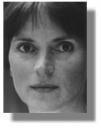 Skrzypaczka Weronika Kadłubkiewicz jest absolwentką Wyższej Szkoły Muzycznej w Warszawie w klasie Krzysztofa Jakowicza. Kontynuowała studia z Henrykiem Szeryngiem i Romanem Totenbergiem w USA. Solistka wielu orkiestr w Polsce, USA i Europie, koncertmistrz New Hampshire Symphony, Orchesta Filarmonica de Gran Canaria i Polskiej Orkiestry Kameralnej. Grała również z Boston Symphony i Orpheus Chamber Orchestra. Dwukrotnie uczestniczyła w Sommerkurse w Darmstadt, a na zaproszenie Lejarena Hillera była rezydentką Creative Associates w Buffalo NY. Występowała na scenach w Polsce, Hiszpanii, Włoszech, Szwecji, Francji, Niemczech, Szwajcarii, Kanadzie i USA. Utalentowana wykonawczyni skrzypcowej muzyki współczesnej ma na swoim koncie prawykonania utworów, z których wiele zostało napisanych specjalnie dla niej. Weronika Kadłubkiewicz brała udział w festiwalach: Warszwska Jesień, Marlboro Music Festival, Bach Aria, Monadnock Music i inne. Prowadziła klasę skrzypiec i muzyki kameralnej w Amherst College, University of Massachusetts i w Smith College. Nagrała płyty dla firm Gasparo i CRI. Po dwudziestu latach pobytu w Stanach Zjednoczonych przeniosła się do Paryża.
Skrzypaczka Weronika Kadłubkiewicz jest absolwentką Wyższej Szkoły Muzycznej w Warszawie w klasie Krzysztofa Jakowicza. Kontynuowała studia z Henrykiem Szeryngiem i Romanem Totenbergiem w USA. Solistka wielu orkiestr w Polsce, USA i Europie, koncertmistrz New Hampshire Symphony, Orchesta Filarmonica de Gran Canaria i Polskiej Orkiestry Kameralnej. Grała również z Boston Symphony i Orpheus Chamber Orchestra. Dwukrotnie uczestniczyła w Sommerkurse w Darmstadt, a na zaproszenie Lejarena Hillera była rezydentką Creative Associates w Buffalo NY. Występowała na scenach w Polsce, Hiszpanii, Włoszech, Szwecji, Francji, Niemczech, Szwajcarii, Kanadzie i USA. Utalentowana wykonawczyni skrzypcowej muzyki współczesnej ma na swoim koncie prawykonania utworów, z których wiele zostało napisanych specjalnie dla niej. Weronika Kadłubkiewicz brała udział w festiwalach: Warszwska Jesień, Marlboro Music Festival, Bach Aria, Monadnock Music i inne. Prowadziła klasę skrzypiec i muzyki kameralnej w Amherst College, University of Massachusetts i w Smith College. Nagrała płyty dla firm Gasparo i CRI. Po dwudziestu latach pobytu w Stanach Zjednoczonych przeniosła się do Paryża.
Kategoria: A.Passigli & V.Kadlubkiewicz | Komentarze wył. »
PROGRAM 1
******************************************
PROGRAMMA 2
*************************************************
PROGRAMMA 3 La Danza fra 800 e 900 S.Prokofiev da Romeo e Giulietta: M.Magin: Kujawiak P.Sarasate: Romanza Andalusa M. de Falla: Danza spagnola C.Saint-Saens: Capriccio su uno Studio in forma di Walzer <<<<<<<<<<<<<<<<<<<<<<<<<>>>>>>>>>>>>>>>>>>>>>>>>>>>> F. Chopin: Polonaise in do diesis min. op.26 n.1 (pianoforte solo) H.Wieniawski: Polonaise in la maggiore |
Kategoria: A.Passigli & V.Kadlubkiewicz | Komentarze wył. »
 They’ve met in 2006 in Paris…a place between Poland and Argentina…She – Polish, born to a musical Silesian family, plays classical and contemporary music all over the worldHe – born in Argentina, the cradle of tango, to a family where everybody plays tango on different instruments…
They’ve met in 2006 in Paris…a place between Poland and Argentina…She – Polish, born to a musical Silesian family, plays classical and contemporary music all over the worldHe – born in Argentina, the cradle of tango, to a family where everybody plays tango on different instruments…
They’ve met in tango…
Duo Cordato is inviting you to a tango, an emotional journey via laughter and fascination, flirt and jealousy, passion, sensuality and love. Manuel Romero said: “Tango is not only a dance. Tango is a kind of lifestyle, state of mind and philosophy. Tango was born from the very deep inside of a human soul and therefore its language is understood by every human being.”
Tango was born in the street. Today it is being played in grand concert halls and danced everywhere.
Tango is a ballroom dance originating from Buenos Aires in Argentina and Montevideo in Uruguay. Habanera and flamenco, the Spanish traditions transplanted to South America, mixed with “candombe”, the dance of African slaves performed and sang at street parades, are at its roots. The word “cum-tan-go” is being repeated in the refrain and this is where “tango” comes from. With a time “candombe” was transformed into “milonga”.
Astor Piazzola (1921-1992) was a musical genius for whom the national dance became a raw material on the basis of which he has invented a completely new music genre. He raised the status of tango from town music to classical music. Piazzola was a great visionary composer, recognised internationally. Unfortunately, he had to fight with the lack of understanding in his own country.
Kacper Podrygajło has written: “In Piazzola’s music the Bach tradition clashes with dances originating from Buenos Aires brothels…In the Baroque tradition everything was mixed up and nobody paid attention to possible misalliance. Gigue (old French ham) was worshiped and by means of this act became an integral part of the Baroque mass. Da chiesa sonata rarely occurred alone. Suite was composed of a cycle of dancing pieces which usually differed from their original versions. We find the same in Piazzola’s music. He writes tango in such a stylized manner that each piece of music differs from each other and, at the same time, they are identical with what they do not represent. However, it does not mean that they are written in a way Bach would have written them if he had lived to our days.”
Duo Cordato with Veronica Kadlubkiewicz violin and Sebastian Cordato guitar and voice perform music of Astor Piazzola’s as well as their own improvisations on dancing music from Argentina.
Kategoria: Duo Cordato | Komentarze wył. »
Café 1930 – Astor Piazzolla.mp3
Bordel 1900 – Astor Piazzolla.mp3
Milonga del Angel – Astor Piazzolla.mp3
Kategoria: Duo Cordato, Music | Komentarze wył. »
Astor Piazzolla and dancing rythms of Argentina
about 35 minutes of music of Duo Cordato
Weronika Kadłubkiewicz violin i Sebastian Cordero guitar and singing
| Astor Piazzolla | Bordel 1900 |
| Cafe 1930 | |
| Nightclub 1960 | |
| Concert d’aujourd’hui | |
| Libertango | |
| Milonga del Angel | |
| Improvisations based on dancing music of Argentina | |
| Payadora | |
| Palomita Blanca | |
| Milonga de mis Amores | |
| Los ejes de mi carreta | |
| Nocturna | |
| Cueca del violin | |
Kategoria: Duo Cordato | Komentarze wył. »
“…a great artist…”
Henryk Szeryng, Ann Arbor, MI
“…Her performance of Berg’s Chamber Concerto was not only perfection itself, but stands apart
as the most eloquent performance of this difficult work I have yet heard…”
Morton Feldman
“…she possesses temperament, the ability to evoke many contrasting moods, and a wide range of tone colors..”
Magil, American Record Guide
“…delicate and perceptive warmth of expression…” “effortlessly detailing each nuance of phrasing…”
Catherine Nelson, Strad, London
“…intense interpretation, profoundly vital, in perfect harmony with Mozart’s spirit…” “…authentic revelation…”
Rafael Nebot, La Provincia, Spain
“…distinct expression, impeccable sound and technique …”
Krzysztof Baculewski, Studio, Poland
“…a striding violinist with formidable modern technique, an extraordinary ear for intonation and a load of dramatic projection…”
John Dwyer, Buffalo Evening
“…she has performed two masterpieces of J.S.Bach : Sonata in g minor and Partita in d minor. Her playing perfectly mastered, the force of her attacks and retakes, the nuances and sensitivity of her interpretation immersed the audience in the atmosphere of meditation and contemplation. » L’echo, Chartres, France
Kategoria: Weronika Kadłubkiewicz | Komentarze wył. »
Karol Szymanowski Sonata d-moll Op.9.mp3 Elizabeth Wright, piano
Witold Szalonek Chaconne-Fantaisie.mp3
Grażyna Bacewicz Druga Sonata na skrzypce solo.mp3
J.S. Bach Sonata a-moll BWV 1003.mp3
Lewis Spratlan Night Music.mp3 Michael Sussman clarinet i John P.Kelly percussion
Salvatore Macchia Chamber Concerto No. 3.mp3 with musicions of University of Massachusetts in Amherst
Robert Stern Fantasy Etude.mp3
Lutosławski Partita – ad libitum (kliknij aby posłuchać utworu) Elizabeth Wright, piano
Kategoria: Music, Weronika Kadłubkiewicz | Komentarze wył. »
Firma GASPARO
GSCD-226 Music From New England (conterporary music for solo violin of american composers: Wheelock, Macchia, Spratlan, Stern)
GSCD-338 “Violin Music from Poland” (Szymanowski, Szalonek, Lutoslawski, Bacewicz)
GSCD-298 Samuel Adler: Chamber Music with Piano Trio no2 (z McDowell Trio)
GSCD-316 D.Wheelock – Sonata for Violin and Piano
GSCD-310 S. Macchia – Horn Trio
GSCD-318 J.Bolle – Duo for Violin and Bass
GSCD-315 L.Sowerby -2 Song Cycles for soprano and string quartet (with D’Anna Fortunato)
Firma CRI
CRI-808 S.Lindroth – Duo for violins ( with Curtisem Macomber)
Kategoria: Weronika Kadłubkiewicz | Komentarze wył. »
[polish]
B1. J.S.Bach skrzypce solo (około 70 min muzyki)
Sonata a-moll BWV 1003
Partita E-dur BWV 1006
Partita d-moll BWV 1004
B2. J.S. Bach skrzypce solo (około 60 minut muzyki)
Sonata g-moll BWV 1001
Partita h-moll BWV 1002
Sonata C-dur BWV 1005
Różne utwory na skrzypce solo (około 60 minut muzyki)
R1.
J.S. Bach – Sonata a-moll BWV 1003
S. Macchia – Agire (2000)
E. Ysaye – Sonata nr 6
R2.
J.S. Bach – Partita d-moll BWV 1004
B. Bartok – Sonata
R3.
J.S. Bach – Partita E-dur BWV 1006
E. Ysaye – Sonata nr 2
G.Bacewicz – Sonata
R4.
E. Ysaye – Sonata nr 2
Sonata nr 3
S. Prokofiew – Sonata
G. Bacewicz – Sonata
Koncerty skrzypcowe z orkiestrą
K1. J.S. Bach Koncert a-moll
K2. W.A. Mozart Koncert A-dur
K3. L.van Beethoven Koncert D-dur
K4. H. Wieniawski Koncert d-moll
K5. C. Saint-Saens Koncert h-moll
K6. F. Mendelssohn Koncert e-moll
K7. K. Szymanowski Koncert nr 1
K8. S. Prokofiew Koncert D-dur [/polish] [english]
B1. J.S.Bach violin solo (about 70 min of music)
Sonata A minor BWV 1003
Partita E major BWV 1006
Partita D minor BWV 1004
B2. J.S. Bach violon solo (about 60 min of music)
Sonata G minor BWV 1001
Partita B minor BWV 1002
Sonata C major BWV 1005
Violin solo – different compositions (about 60 min of music)
R1.
J.S. Bach – Sonata A minor BWV 1003
S. Macchia – Agire (2000)
E. Ysaye – Sonata No. 6
R2.
J.S. Bach – Partita D minor BWV 1004
B. Bartok – Sonata
R3.
J.S. Bach – Partita E major BWV 1006
E. Ysaye – Sonata No. 2
G.Bacewicz – Sonata
R4.
E. Ysaye – Sonata No. 2
Sonata No. 3
S. Prokofiew – Sonata
G. Bacewicz – Sonata
Concertos for violin and orchestra:
K1. J.S. Bach Concert A minor
K2. W.A. Mozart Concert A major
K3. L.van Beethoven Concert D major
K4. H. Wieniawski Concert D minor
K5. C. Saint-Saens Concert B minor
K6. F. Mendelssohn Concert E minor
K7. K. Szymanowski Concert No. 1
K8. S. Prokofiew Concert D major [/english]
Kategoria: Weronika Kadłubkiewicz | Komentarze wył. »
 They seem to have been cast in the same mould, very much like two beans in a sackful of coffee. It should be added – an exceptionally strong and aromatic coffee. Quite simply – “Doppio Espresso”.
They seem to have been cast in the same mould, very much like two beans in a sackful of coffee. It should be added – an exceptionally strong and aromatic coffee. Quite simply – “Doppio Espresso”.
They heard someone ordering a ‘doppio espresso’ in a bar and fell under the spell of the drink’s strength.
The fact that this is what they decided to call their duo tells us much about the kind of impact they want to make on listeners. Surely, their performances are not luke-warm.Interestingly enough, they became friends long before the duo saw the light of day. They were in secondary school at the time. They first met at the Piano Festival in Nałęczów and the masterclasses given there by Micha³’s father, the prominent pianist Marek Drewnowski.Daniel attended at that time the Secondary Music School in Krosno, studying in the piano class of Dorota Skibicka. He subsequently studied with Marek Drewnowski. Before he became his student, he once moved his future professor to tears with his playing of Chopin’s music. These were tears of emotion, to which the professor himself admitted. Daniel was already then a very sensitive and reflective man. He read a lot. He made much effort to strike a balance between emotion and intellect in his playing.Michał, for his part, drove to tears another outstanding pianist, Naum Shtarkman, to whom he presented his interpretation of Scarlatti’s Sonata in F minor in the same venue the previous year. Michał had always wanted to play an ambitious repertoire (Liszt, Rachmaninov) and he could listen passionately to his beloved Vladimir Horovitz, from whom he derived his musical inspiration.Studying together, Daniel and Michał continued to be close friends, even though the nature of their profession would rather provoke stiff competition between them. During their studies at the Conservatoire de Musique in Geneva (where they both went after graduating from the Music Academy in Łódź), they decided to set up a duo. They made their debut in the prestigious Victoria Hall in Geneva, with a programme including works by Leonard Bernstein and Astor Piazzolla. Right now, with Michał back in Łódź and Daniel in Krosno, their duo continues to perform and record. This debut CD is a discovery of the New World, for themselves and for music lovers. In Europe, the music of both Americas, and of South America in particular, is something new and somewhat exotic. These days it is simply fashionable, with almost all people easily recognizing the tune of Astor Piazzolla’s Libertango or the themes of Bernstein’s West Side Story. In addition to these two great masters, the CD contains miniatures by Piazolla’s artistic followers, Pablo Ziegler and José Bragato, as well as Brazilian Dance by the Canadian composer Roger Matton. This last piece is a like a symbolic blend of the CD’s two parts – the music of North and South America. It should be hoped that the great passion and commitment of the duo “Doppio Espresso” will help all listeners gain better insights into this music and fall in love with it.
Ewa Cisowska
Michał Drewnowski was born in Warsaw in 1977. He started learning to play the piano in Italy, when he was 8, under the supervision of his father, an excellent pianist Marek Drewnowski. After his return to Poland at the age of 14, he continued his musical education, at Karol Szymanowski Secondary Music School in Warsaw in the class of professor Bronisława Kawalla and Professor Ewa Pobłocka. In 2001 he graduated with honours from Bacewicz Music Academy in Łódź, where he studied under the guidance of his father, professor Marek Drewnowski. He also developed his skills in Genf Conservatory of Music with such distinguished teachers as Dominique Merlet and Pascal Devoyon; there he also obtained a diploma with distinction. He took part in many master courses given by such eminent pianists as Nauma Shtarkmann, Miłosz Magin, Fou T’song, Rudolf Kehrer and Eugen Indjic.
He is a prize-winer in the following competitions: Special Prize at the 1st Aleksander Tansman International Festival and Competition of Musical Personalities in Łódź (1996), First Prize at 13th Grażyna Bacewicz All-Polish Chamber Music Competition in Łódź (1998), at 32th Polish Piano Festival in Słupsk (1998), Second Prize at M.Masin International Piano Festival in Sangemini (Italy, 2000), Second Prize at Piano Competition A.GI.MUS in Rome (2005).
Michał Drewnowski gives concerts, both as a soloist and a chamber musician, in Poland, Italy, France, Switzerland, Luxembourg, Belgium, England, Austria, Czech Republic and Germany. He has performed with many renowned orchestras in Poland and abroad with leading conductors such as Piotr Wijatkowski, Janusz Powolny, Tadeusz Kozłowski, Vladimir Kiradjev and Stanislav Oushev. He participated in many prestigious festivals, such as Passage in Warsaw, Salon of Arts in Sofia, Festival Musicale di Norcia (Italy), Varna Summer Festival (Bulgaria), Cracow Spring Music Festival, Warsaw Music Encounter, Chopin Geneve Festival, Keminklavier in Kemi (Finland).
He also gave concerts in: Concerti Gianicolo in Rome, Steinway Kammersal in Kopenhaga, Kunstmuseum in Silkeborg (Denmark), Sala Bulgaria in Sofia, Wigmore Hall in London. In the period of 2000-2001 he participated as a pianist and also an actor at Teatr Nowy in Warsaw in a play of Adam Hanuszkiewicz “Chopin, his life, his love, his music”. He perfomed the main character – Frederic Chopin.
Michał Drewnowski is a cofounder of Voland Quartet, with which he gave concerts in many countries of Europe. They also made recordings for GEGA NEW company where they play the music of B.Bartok, A.Aroutunian, A.ben Shabetai, J.Bauer, G.Arnaoudov, H.Yotzov for two pianos and percussion. He is also a cofounder of piano duet Doppio Espresso, that specialises in music of American and Latinoamerican composeres, such as L.Bernstein, A.Piazzolla, P.Ziegler, and J.Bragato.
Daniel Eibin graduated from the Music Academy in Łódź, where he studied with Marek Drewnowski (a diploma with distinction), and the Conservatoire de Musique in Geneva, with Elizabeth Athanassova. His honours include First Prizes at the International Chamber Music Competition in Łódź (2001), the Chopin International Piano Competition in Antonin (1996) and the National Competition of Chamber Ensembles in Wrocław (1994). He is also a prizewinner of the Józef Hofmann and Ignacy Jan Paderewski Competition in Nałęczów (1997). He gave several concerts during the “Festival du Printemps – Sacre de la Musique” in France (1997). He held grants from the Minister of Culture (1996, 2001) and the Fondation Norbert Schenkel in Geneva (2004).
He perfected his skills attending masterclasses given by Janusz Olejniczak, Lee Kum Sing, Ivana Klansky, Alfonso Montecino and Eugene Indjic. He has made recordings for Polish Radio and Polish Television.
He is a co-founder of the piano duo “Doppio Espresso” which performs modern classical music. He developed a fine career, with regular performances in Poland and many European countries, both in recitals and in chamber ensembles performing music of various periods. In 2002 he began a teaching career. [/english]
Kategoria: Doppio Espresso | Komentarze wył. »
Kategoria: Doppio Espresso, Music | Komentarze wył. »
Kategoria: Doppio Espresso | Komentarze wył. »
For 2 piano
Astor Piazzolla : Libertango ( 6′)
Suite Porteña de ballet (12′)
Le Grand Tango (12′)
Milonga del Ángel (6′)
Leonard Bernstein : Symphonic Dances to WEST SIDE STORY (23′)
Pablo Ziegler : Milongueta (11′)
Asfalto (7′)
Sandunga (5′)
José Bragato : Guarania y Galopa Paraguaya (5′)
Roger Matton : Danse brésilienne (5′)
George Gershwin : Amerykanin w Paryzu (18′)
Błekitna Rapsodia (18′)
Koncert fortepianowy (16′)
****
Witold Lutoslawski : Wariacje na temat Paganiniego (7′)Francis Poulenc : Sonata na 2 fortepiany (15′)
Fryderyk Chopin : Rondo na 2 fortepiany (6′)
Maurice Ravel : Ma Mère l’Oye (15′)
La Valse (12′)
For Four-Hands
Astor Piazzolla : Cztery Pory Roku (20′)
George Gershwin : Summertime (4′)
I love you Porgy (5′)
****
George Bizet : Zabawy dziecięce (Jeux d’enfants) (28′)
Maurice Ravel : Ma mère l’Oye (15′)
La Valse (12′)
Gabriel Fauré : Suita DOLLY (16′)
Maurycy Moszkowski : Tance Hiszpańskie op. 21 (14′)
Tance Polskie op. 55 (12′)
Erik Satie : Trois morceaux en forme de poire (10′)
En habit de cheval (6′)
[/english]
Kategoria: Doppio Espresso | Komentarze wył. »
The Stone group was formed in 2003. Its members are Michał Wróblewski, playing the violin, and Adam Wróblewski, playing the cello. The Stone is an aviant-garde group, whose compositions are based on trance music, and that it why the goal of the concerts is to create a suggestive trance similar to ritual music from various cultures (elements of Oriental music, psychedelic rock and free jazz). Trying to define their work, the group uses the term electrosonoromedium (musicians are the medium of the new electro-acoustic sound). A concert is divided into thematically interrelated sets, improvised based on the prepared form. In 2005, in Leipzig, a premiere of the spectacle “Mom, let me dance Mahler” by the “Cinema” Theater, with music of the group, took place.
Michał Wróblewski is a graduate of the Academy of Music in Wrocław, Prof. Marek Pijarowski’s conductor’s class. He started his musical education at the age of 7 in the State Music School of the 1st grade in Wrocław, learning to play the violin. He earned his Professional Instrumentalist Diploma specializing in violin playing, studying under the supervision of an excellent violinist Prof. Michał Grabarczyk in Poznań. He cultivated his skills by attending international violin competitions with such masters as, among others, Prof. R. Totenberg (USA), R. Szreder (The Netherlands), K. Węgrzyn (Germany) and a conducting course under the guidance of Maestro Kurt Masur. As participant of modern music courses, he learned from Prof. S. Esztenyi and Prof. H. Fiore. Michał Wróblewski has been involved in chamber music for many years (winner of chamber music competitions). Being a member of the groups “Wróblewski – Trio,” “Musica Poetica Nova,” he took part in many festivals (among others “Wratislavia Cantans,” “Where the Fountains Play”) and his performance was often recorded for the needs of the radio, television, and movie industry. He conducted music workshops with theatrical groups from Poland and Germany (including graduates of Kolleg für dramatische Kunst in Bremen). His debut as a conductor took place in March 2004, in “Oratorium Marianum” Hall of the University of Wrocław, during the “Classic Premiere” festival. Wróblewski’s repertoire includes works of each kind of music, from classical to rock music.
Adam Wróblewski is a student of the Academy of Music in Poznań in Eugeniusz Zboralski’s cello class. He started his musical education at the age of 7, learning in music schools in Wrocław and Poznań. He cultivated his artistic skills by attending international cello courses, perfecting performance with such masters as, among others, Prof. R. Jabłoński (Spain), Prof. K. Michalik, Prof. S. Firlej and by attending modern music courses conducted by Prof. B. Schaeffer and Prof. S. Esztenyi. A winner of chamber music competitions, he has been involved in this music for many years. As a member of the groups “Wróblewski – Trio,” “Musica Poetica Nova,” he took part in many festivals (among others “Wratislavia Cantans,” “Where the Fountains Play”) and his performance was often recorded for the needs of the radio, television, movie industry and theater. From 2001 to 2003 he cooperated with the Sachsen-Anhalt Youth Symphony Orchestra. In 2002 Wróblewski took part in the Visegrád Youth Philharmonic tour through Poland, Hungary, the Czech Republic, and Slovakia.
Kategoria: The Stone | Komentarze wył. »
The repertoire of The Stone consists of original compositions, improvisations on previously agreed on themes. Each concert of The Stone offers different music, although the compositions have their titles:SINBAD THE SAILOR
OSIRISATION
LETTER TO E
MENTAL INSTITUTION
COSMIC TRAIN
McD
CALCULATING MACHINE FROM THE ATTIC
Kategoria: The Stone | Komentarze wył. »
romans-e-dur-aleksander-zarzycki.mp3
mazurek-g-dur-aleksander-zarzycki.mp3
krakowiak-roman-statkowski.mp3
burleska-adam-andrzejowski.mp3
capriccio-valse-e-dur-op-7-henryk-wieniawski.mp3
chanson-polonaise-op-12-nr-2-henryk-wieniawski.mp3
kujawiak-a-moll-henryk-wieniawski.mp3
legenda-g-moll-op-17-henryk-wieniawski.mp3
nokturn-cis-moll-op-posth-nr-20-fryderyk-chopin.mp3
polanaise-brillante-a-dur-op-21-henryk-wieniawski.mp3
scherzo-tarantelle-g-moll-op-16-henryk-wieniawski.mp3
valse-h-moll-op-69-nr-2-fryderyk-chopin.mp3
Magdalena Rezler Niesiołowska skrzypce
SINFONIETTA BYDGOSTIENSIS
Maciej Niesiołowski dyrygent
Kategoria: Magdalena Rezler-Niesiołowska, Music | Komentarze wył. »
1797-1997 Franz Schubert Bicentenary Edition – Andrea Passigli – piano
Editor: foné 97F 01/02
CD I Sonata B-dur op. posth. D 960
Scherzo Allegro vivace con delicatezza.mp3
Rondo Allegro ma non troppo.mp3
CD II 4 Impromptus op. 90 D 899
cis-moll Allegro molto moderato.mp3
CD II 6 Moments Musicaux op. 94 D 780
Kategoria: Andrea Passigli, Music | Komentarze wył. »
Jerzy Maciejewski began to study piano at the age of five and continued very extensive music education until he became a student at The Fryderyk Chopin Warsaw Academy of Music. He received master’s degree in piano as a student of Maria Wilkomirska. Jerzy Maciejewski is currently the Professor at The Warsaw Academy of Music in Warsaw and Visiting Professor Kaemyung – Chopin Academy in Daegu (South Korea). Every year he is being invited to give workshops and seminars at the Master’s Training Programs in Poland and abroad, for instance at The Wiener Musik Seminars in Vienna, Austria. He is also participating in a special music events for children and young audience organized by National Philharmonics in Poland.
His artistic career was launched when he was still a student at The Academy of Music. Being a member of The Fryderyk Chopin’s Society in Poland, he gave a number of piano concerts. As a talented pianist he was granted multiple scholarships from The Fryderyk Chopin’s Society.
During his artistic career Jerzy Maciejewski cooperated very closely with The Fryderyk Chopin’s Society of Warsaw. During that time he gave a number of recitals in places where Fryderyk Chopin was born and lived. The examples of concerts in such places are: Chopin Family’s house in Żelazowa Wola where Chopin was born, and concerts at the Chopin’s Monument at Łazienki Park in Warsaw. The pianist participated in many prestigious piano festivals, e.g. in Duszniki and Słupsk, Poland. He was invited to participate in philharmonic performances in Poland and most of the European countries as well as in South Korea and Mexico. During the last few years he performed a wide variety of classical and contemporary music; for example music by George Crumb and Stanisław Moryto.
Jerzy Maciejewski performed many of original works of contemporary composers as solo concerts as well as with chamber, and philharmonic orchestras.
Within the several years, an artist was particularly interested in working with chamber groups, and outstanding polish musicians. Together they gave many chamber performances in Poland and abroad. Jerzy Maciejewski is the creator of The Ignacy Jan Paderewski’s Piano Trio Group and co-creator of The Camerata Vistula Chamber Music Group in Poland.
An artist recorded complete works of Karol Szymanowski for violin and piano together with violinist Magdalena Rezler, as well as songs of Fr. Chopin and I. J. Paderewski sung by Ewa Izykowska.
He is also known as an interpreter of music for two pianos and drums by Bela Bartok and George Crumb in cooperation with Stanisław Skoczynski.
On average he performs about 60 concerts per year, solo or with other artists and/or orchestras.
Kategoria: Jerzy Maciejewski | Komentarze wył. »
